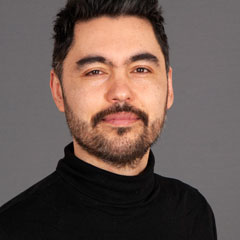Adrián Villaseñor, Research Fellow, Centre for Health Economics
Adrián is a development economist who holds a PhD in international development from the University of East Anglia.

His two main research disciplines are development economics and health economics and he is currently a research fellow at the Centre for Health Economics working on costing mental health activity in the NHS.
email: adrian.villasenor-lopez@york.ac.uk
Our 60-second interview with Adrián:
What do you do in the field of mental health?
My work in the field of mental health has two streams: individual, and institutional level. At the individual level I research how relative deprivation and inequality are related to mental health indicators, for example, depressive symptoms. At the institutional level I work with English Hospital Episode Statistics (HES) data and the Mental Health Services Data Set (MHSDS) to understand how to better provide mental health services to the population.
What do you find most rewarding and inspiring in this work?
We have understood how poverty is related to and impacts on mental health. There is still a lot, however, to say about how inequality and relative deprivation relate to and impact on mental health. I believe I can contribute a lot, not only within the academic sector, but also outside, through the real world repercussions of policies to improve the delivery of mental health services and socioeconomic policies to tackle inequality.
What is the most challenging or complicated aspect of this work?
The fact that as a field we still conceptualise “Mental Health” as a collection of conditions with common dynamics, challenges, and conceptual paths where, in reality, each mental health condition is unique even within its degrees of severity. Also, empirically, mental health data still has a long way to go in terms of quality and coverage.
What impact do you hope your work is having- or can potentially have?
On the one hand I simply hope my work helps raise broad awareness around the relationship between inequality and mental health. On the other, I hope my work results in actionable policies to improve population mental health and to make the delivery of mental health services more efficient and effective.
Could you share with us one piece of advice that you follow for your own mental health?
I could write a good dozen things I have done to manage and improve my mental health but in reality, there is nothing quite like getting a dog. Pedro, my Hungarian Vizsla and Phoebe, my miniature dachshund have made me more resilient, structured and have helped me have a routine. I am more active than ever, more caring than ever, and more patient than ever. If you have been thinking about getting a dog for a while, this is your sign to do it!